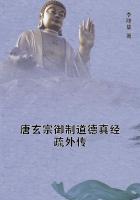Looking back now, in the light of the information I have gathered, I am able to trace very clearly, and almost hour by hour, the events of this day, and to understand how chance, laying hold of our cunning plan and mocking our wiliness, twisted and turned our device to a predetermined but undreamt-of issue, of which we were most guiltless in thought or intent. Had the king not gone to the hunting-lodge, our design would have found the fulfilment we looked for; had Rischenheim succeeded in warning Rupert of Hentzau, we should have stood where we were.
Fate or fortune would have it otherwise. The king, being weary, went to the lodge, and Rischenheim failed in warning his cousin.
It was a narrow failure, for Rupert, as his laugh told me, was in the house in the Konigstrasse when I set out from Strelsau, and Rischenheim arrived there at half past four. He had taken the train at a roadside station, and thus easily outstripped Mr.
Rassendyll, who, not daring to show his face, was forced to ride all the way and enter the city under cover of night. But Rischenheim had not dared to send a warning, for he knew that we were in possession of the address and did not know what steps we might have taken to intercept messages. Therefore he was obliged to carry the news himself; when he came his man was gone. Indeed Rupert must have left the house almost immediately after I was safe away from the city. He was determined to be in good time for his appointment; his only enemies were not in Strelsau; there was no warrant on which he could be apprehended; and, although his connection with Black Michael was a matter of popular gossip, he felt himself safe from arrest by virtue of the secret that protected him. Accordingly he walked out of the house, went to the station, took his ticket to Hofbau, and, traveling by the four o'clock train, reached his destination about half-past five.
He must have passed the train in which Rischenheim traveled; the first news the latter had of his departure was from a porter at the station, who, having recognized the Count of Hentzau, ventured to congratulate Rischenheim on his cousin's return.
Rischenheim made no answer, but hurried in great agitation to the house in the Konigstrasse, where the old woman Holf confirmed the tidings. Then he passed through a period of great irresolution. Loyalty to Rupert urged that he should follow him and share the perils into which his cousin was hastening. But caution whispered that he was not irrevocably committed, that nothing overt yet connected him with Rupert's schemes, and that we who knew the truth should be well content to purchase his silence as to the trick we had played by granting him immunity.
His fears won the day, and, like the irresolute man he was, he determined to wait in Strelsau till he heard the issue of the meeting at the lodge. If Rupert were disposed of there, he had something to offer us in return for peace; if his cousin escaped, he would be in the Konigstrasse, prepared to second the further plans of the desperate adventurer. In any event his skin was safe, and I presume to think that this weighed a little with him;
for excuse he had the wound which Bernenstein had given him, and which rendered his right arm entirely useless; had he gone then, he would have been a most inefficient ally.
Of all this we, as we rode through the forest, knew nothing. We might guess, conjecture, hope, or fear; but our certain knowledge stopped with Rischenheim's start for the capital and Rupert's presence there at three o'clock. The pair might have met or might have missed. We had to act as though they had missed and Rupert were gone to meet the king. But we were late. The consciousness of that pressed upon us, although we evaded further mention of it; it made us spur and drive our horses as quickly, ay, and a little more quickly, than safety allowed. Once James's horse stumbled in the darkness and its rider was thrown; more than once a low bough hanging over the path nearly swept me, dead or stunned, from my seat. Sapt paid no attention to these mishaps or threatened mishaps. He had taken the lead, and, sitting well down in his saddle, rode ahead, turning neither to right nor left, never slackening his pace, sparing neither himself nor his beast.
James and I were side by side behind him. We rode in silence, finding nothing to say to one another. My mind was full of a picture--the picture of Rupert with his easy smile handing to the king the queen's letter. For the hour of the rendezvous was past. If that image had been translated into reality, what must we do? To kill Rupert would satisfy revenge, but of what other avail would it be when the king had read the letter? I am ashamed to say that I found myself girding at Mr. Rassendyll for happening on a plan which the course of events had turned into a trap for ourselves and not for Rupert of Hentzau.
Suddenly Sapt, turning his head for the first time, pointed in front of him. The lodge was before us; we saw it looming dimly a quarter of a mile off. Sapt reined in his horse, and we followed his example. All dismounted, we tied our horses to trees and went forward at a quick, silent walk. Our idea was that Sapt should enter on pretext of having been sent by the queen to attend to her husband's comfort and arrange for his return without further fatigue next day. If Rupert had come and gone, the king's demeanor would probably betray the fact; if he had not yet come, I and James, patrolling outside, would bar his passage. There was a third possibility; he might be even now with the king. Our course in such a case we left unsettled; so far as I had any plan, it was to kill Rupert and to convince the king that the letter was a forgery--a desperate hope, so desperate that we turned our eyes away from the possibility which would make it our only resource.
We were now very near the hunting-lodge, being about forty yards from the front of it. All at once Sapt threw himself on his stomach on the ground.
"Give me a match," he whispered.















